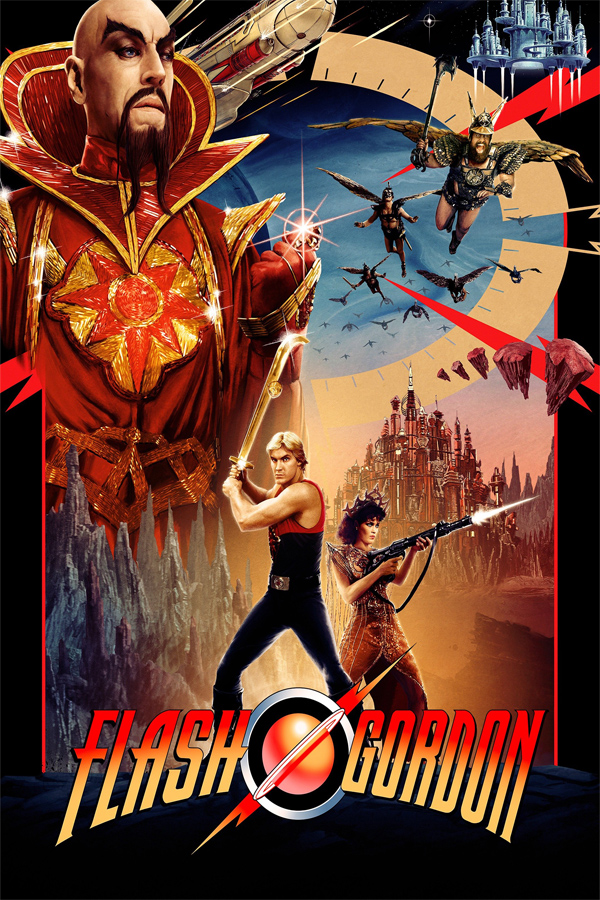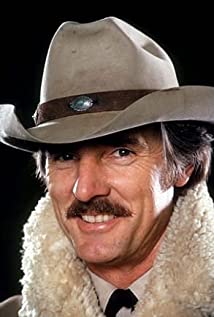Dennis Weaver
Dennis Weaver first became familiar to television audiences as Matt Dillon's assistant Chester Goode in Gunsmoke (1955). After playing the part for nine years, he moved on to star in his own series, Kentucky Jones (1964). However, the show failed to find mass appeal and was cancelled after just one season. Weaver had to wait another five years before finally emerging as a TV star in his own right. Beginning in 1971, he portrayed the titular Marshal Sam McCloud, a lawman from Taos, New Mexico, working in New York to learn the ways of policing in Manhattan's 27th Precinct under the auspices of a frequently apoplectic Chief of Detectives, Peter Clifford (J.D. Cannon). Accented in a slow Texan drawl (his regular catchphrase was "There you go..") and decked out with cowboy hat, lasso and sheepskin jacket, McCloud went about his tasks pretty much the same way he would have done out in the West -- often to the chagrin of his boss, nevertheless always apprehending the villain in the end (sometimes on horseback). His fractious relationship with Clifford provided much of the enjoyment inherent in the show. Weaver later recalled "McCloud was the kind of role I left Gunsmoke to get... I wanted to be a leading man instead of a second banana." Between 1971 and 1977, McCloud (1970) (based in part on the Clint Eastwood film Coogan's Bluff (1968)) was part of Universal's "Mystery Movie" which filled a slot at NBC with films lasting from 74 to 97 minutes (longer than your average TV episode) and which rotated several productions, the most important being Columbo (1971) (Peter Falk), Banacek (1972) (George Peppard), McMillan & Wife (1971) (Rock Hudson) and Hec Ramsey (1972) (Richard Boone).
Weaver hailed from Joplin, Missouri, where his father (who was of mixed English, Irish, Scottish, Cherokee, and Osage ancestry) worked for the local electric company. Young Dennis proved himself a gifted track and field athlete while studying for a degree in fine arts at the University of Oklahoma. During World War II, he served as a fighter pilot in the U.S. Navy. After the war, Weaver forsook sports for a career on the stage, undertaking further drama classes at the Actor's Studio in New York. One of his fellow alumni was actress Shelley Winters who later helped him to get into films. Following his Broadway debut in "Come Back, Little Sheba", Weaver found work in plays by Tennessee Williams off-Broadway and then made his movie debut at Universal in the western Horizons West (1952). He made several more pictures, mostly westerns, but was largely cast in minor roles. He languished in relative obscurity until he landed several guest spots on Jack Webb's Dragnet (1951). His career really took off with McCloud and with the Steven Spielberg-directed Duel (1971), a thriller made for the small screen (essentially a one-man show) in which a lone driver is menaced by a sinister petrol tanker driven by an unseen force. He later found other regular television work (Stone (1979), Emerald Point N.A.S. (1983) and Buck James (1987)), but none of these managed to recapture his earlier successes. In Lonesome Dove: The Series (1994), he was true to his colours, playing western hero Buffalo Bill Cody, a.k.a. Buffalo Bill.
Weaver served as President of the Screen Actors Guild from 1973 to 1975. He was in the forefront of environmental activism, a proponent of alternative energy and recycling (his Colorado home, called "Earthship", was primarily constructed from recycled tyres and aluminium cans).

